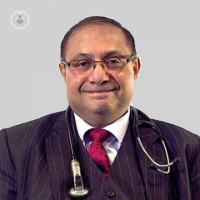Modern care in geriatrics
Written by:What are some new developments in geriatrics in modern society?
In recent years there have been several developments in dementia care. Aducanumab and lercanimab are two new drugs which are part of a new groups of drugs which can reverse the progress of dementia.
Cardiac care has also progressed enormously. Just thirty or forty years ago, dying from heart disease was common but nowadays, blood pressure control and statins have significantly improved cardiac problems.

Surgical and neuro-radiological procedures have also progressed to aid stroke care.
There has been a lack of development in dementia care over the years, however, insight into the previously mentioned new drugs is wonderful, promising news and doctors are eagerly awaiting for their licence use in the UK. They hope these drugs will be licenced in the next 18-24 months.
Additionally, there has been some important, recent developments surrounding Parkinson's disease. It was previously considered a taboo subject but this has changed with famous people such as TV presenter Jeremy Paxman and comedian Billy Connolly speaking out about their experiences of living with Parkinson's.
Doctors are now beginning to understand more about Parkinson's and its links with dementia. Both Parkinson’s and dementia involve wear and tear of the brain and are most likely to fall onto the same neurodegenerative spectrum.
How do health inequalities exacerbate care for the elderly?
Unfortunately, there are significant inequalities between care for elderly patients who are rich and poor. Currently in the UK, due to the cost of living crisis, doctors are seeing patients who are unable to heat their homes and only eat one meal a day.
They are extremely anxious about their future due to the cost of living crisis and how to survive each day. Sadly, some elderly people currently rely on food banks in order to survive.
In the UK, I believe it is important that we take inspiration from countries such as the Netherlands, who are known for their dementia villages. This concept permits dementia patients to live in their own community with people such as a shopkeeper or a bus driver working in dual roles as dementia nurses.
How do you see geriatric care developing in the future? Are there potential advances in treatment and care that are going to make big differences to patients?
I see geriatric medicine having a change of direction. One reason why geriatrics as a specialty has survived is because doctors have been able to reinvent themselves.
In the past, geriatrics was only practised in the community, before moving to the hospital and then to acute medicine, focusing on acute on calls and an on-call rota. Doctors then began to address stroke care. Around 70% of stroke physicians are also geriatricians.
I can see geriatrics developing based on the needs of the community and the population. This may mean it will be partly treated in hospital and partly in the community, where I believe it would be the best place for geriatricians to offer expertise, through working with GPs, specialist nurses, therapists and social services.


